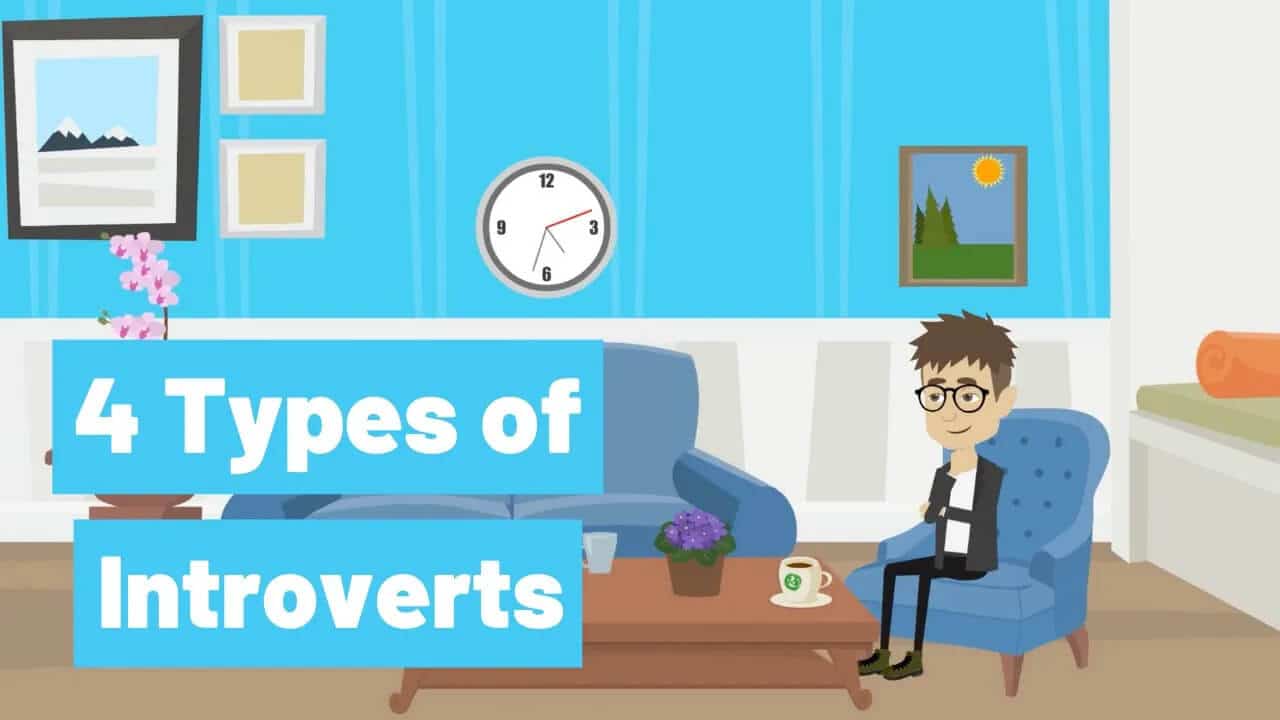3 Types of Stress (And Their Causes)
21st November 2021
Have you ever thought to yourself “why am I so emotional?”
We can all get a little overwhelmed sometimes.
It doesn’t imply we’re weak, it simply means that we have a lot to deal with right now.
Whether we’re going through life changes dealing with family illnesses or facing relationship challenges, it’s natural to have reactions.
What really matters is less the emotions themselves, but how we choose to acknowledge and engage with them.
By doing this, we can understand our feelings better leading to an emotional journey.
Recognising the Rollercoaster: Why We Feel So Emotional
Emotions play a hugely significant role in our lives, serving more as guides than the adversaries we often frame them as being.
It’s important to remember that although emotions themselves are their own experiences, they are also reflective of other experiences, offering insights that signal the need for attention or action in our lives.
Our emotions act as a language through which we interpret our interactions with the world.
They assist us in determining whether a situation aligns with our values and needs or if it goes against them and requires a corrective or nurturing response.
For example, anger might indicate a violation of boundaries. Sadness could indicate a loss or unmet needs and joy may reveal alignment with our true desires.
For us to truly embrace living, we need to embrace our emotions. We simply can’t hide from them. This is the first step of emotional intimacy.
It’s first being emotionally intimate with ourselves, which, in turn, will allow us to form deeper connections with other people in our lives.
Beyond the Waves: Normalising Our Emotions
It’s important to emphasise, it’s completely normal to experience your emotions.
In a world full of trigger warnings everywhere, asking us to avoid any kind of emotional heightening, feeling has become ‘unfashionable.’ But we’re here to do just that.
We are here to feel.
What really matters is the intensity and frequency with which they occur.
Feeling occasional bursts of anger, fleeting moments of sadness or manageable periods of stress is a part of being human.
However, if these emotions start to feel like waves constantly crashing over you and threatening to cause overwhelm, it’s probably a sign that you could use some additional support.
The “Normal” vs. “Overwhelmed” Line:
Navigating the “normal” and “overwhelmed” line can be challenging. Here are some signs that could indicate where you are on the spectrum.
Frequency Matters: Distinguishing Normal vs. Overwhelming Emotions
- Frequency: Are these intense emotions constant companions, or occasional visitors? For some, these intense emotions might pop up only during stressful periods. For others, they might be frequent companions, showing up daily or even multiple times a day.”
- Intensity: Evaluate the strength of your emotions. If they consistently overpower your ability to function, consider techniques or professional help to moderate their intensity. Do your emotions feel like tidal waves knocking you off your feet, or manageable ripples?
- Impact: Observe how emotions affect your life. Are your emotions hindering your daily functioning, preventing you from work, social interactions, or healthy habits?
If you answered “yes” to any of these questions, don’t panic.
This is just the first step towards understanding and managing your emotional journey.
Remember, emotional overwhelm is not a weakness, but a call to action – a call to explore the triggers, equip yourself with coping mechanisms, and seek support when needed.
From Overwhelm to Empowerment: Navigating Intense Emotions
Sometimes, being triggered just can’t be helped.
Sometimes, we’re on a course that’s taking us towards an event that can’t be avoided. However, we can support ourselves with the tools to help navigate these situations with ease and confidence.
Let’s explore how to personalise your emotional experience, build your emotional toolbox, and know when to call in the reinforcements.
Personalising Your Emotional Journey: Unmasking Your Unique Triggers and Patterns
Everyone’s emotional capacity is different, which means we all react in our own unique ways, to similar situations.
It’s important to recognise and comprehend your triggers and patterns.
Tools like quizzes, online assessments or journaling prompts such as “Why do certain people affect me,” Why am I so raw around certain people?”
Or “Which situations leave me feeling overwhelmed?” to pinpoint the triggers that are specific to you. Utilise anything that will help encourage self-inquiry.
Research published in the Journal of Personality and Social Psychology suggests that identifying your triggers greatly assists in managing overwhelming emotions.
By mapping out your landscape you empower yourself to tailor coping strategies, strengthening your ability to navigate through emotional challenges with increased confidence and resilience.
Building Your Emotional Toolbox: Strategies to Manage Overwhelm
Here are some strategies to consider bringing into your emotional regulation toolbox:
1. Mindfulness: Train yourself to be fully present with your emotions adopting the mindset of an observer rather than a panicked judge. Apps like Headspace or Calm can serve as guides for meditation assisting you in navigating your emotions with calmness and awareness. Numerous studies have shown that mindfulness training can significantly reduce stress levels and improve regulation, making it an invaluable tool for cultivating resilience.
2. Journaling: Take the time to commit your thoughts and feelings onto paper (or screen). Journaling provides a space for exploration, allowing you to untangle emotions and gain valuable perspective. Use prompts like “What triggered this emotional response?” or “What could I do differently next time?” to gain a deeper understanding. What fears do I want to confront?” These prompts can ignite self-discovery that will yield insights that will assist in managing emotional rollercoasters.
3. Relaxation Techniques: When emotions run high, lean into breathing exercises, progressive muscle relaxation techniques or guided imagery as anchors to help ground yourself.
4. Creative Expression: Nurture your emotions by letting them come alive on a canvas singing from your voice or flowing through the ink of your pen. Art, music, dance and writing possess incredible potential to serve as outlets for emotions that may otherwise be difficult to express.
Remember: Your emotional toolbox is a living entity. Experiment with different techniques, and find what works best for you. Don’t be afraid to discard tools that don’t resonate and add new ones as you discover what strengthens you.
When to Seek Professional Help:
Sometimes, even with the best will in the world, our own resourcefulness and emotional toolkit might not be enough.
If you find yourself feeling overwhelmed to the point of it affecting your life or becoming unmanageable, seeking help from a professional is a sign of strength not a weakness.
It’s important not to hesitate to reach out to a therapist, counsellor or mental health expert if you are experiencing any of the following:
- Persistent feelings of sadness, anxiety, or anger
- Difficulty sleeping or eating
- Changes in motivation or energy levels
- Thoughts of self-harm or suicide ideation
- Difficulty with relationships or work
Beyond the Individual: Understanding Environmental and Societal Influences
Cultural expectations and the impact of media can sometimes take us from our natural state of well-being, heightening our emotional state and contributing to the feeling of overwhelm. These external influences are some of the biggest factors in how we think and feel.
Cultural Pressures and Emotional Expectations:
Different cultures often have unspoken rules on how we should handle and show our emotions. Phrases like “boys don’t cry,” “strong women don’t crumble,” and “don’t be too sensitive” exemplify these expectations.
Suppressing our emotions or conforming to gender roles can create conflicts that inevitably contribute to even more difficulty in regulating our emotions because they’re not allowed to be expressed properly.
If you ever find yourself wondering why you struggle with controlling your emotions, consider whether cultural pressures play a role in influencing your expression.
It’s important to remember that your emotions are valid irrespective of what your culture may dictate. It’s perfectly acceptable to express sadness, anger or joy in healthy ways. If you’re finding it hard to meet expectations here are a few things you can consider:
- Challenging internalised beliefs:
Question cultural narratives that limit your emotional expression.
- Setting healthy boundaries:
Don’t feel obligated to share emotions if it feels uncomfortable.
- Finding supportive communities:
Seek out spaces where your authentic self is accepted and celebrated.
The Role of Social Media and Mental Health:
Social media can be a double-edged sword when it comes to our emotions. On one level, it helps us stay connected with our loved ones and communities.
However, it also exposes us to idealised versions of people’s lives, which can make us feel inadequate and lead us to compare ourselves unfavourably to others.
This constant comparison often leads to self-doubt, overwhelm and sometimes even experiencing sadness with thoughts such as “Why am I so emotional for no reason?”, leaving us feeling like we’re not good enough or worthy.
To navigate social media in a conscious and constructive way:
1. Be selective about who you follow: Choose to follow accounts that inspire and motivate you rather than ones that evoke feelings of jealousy or insecurity. Learn to recognise “airbrushed reality.”
2. Limit your screen time: Take breaks from social media, especially before going to sleep.
3. Focus on real-life experiences: Bear in mind that social media often showcases the parts of people’s lives, not the whole reality. Focus on building connections and cherishing experiences in your world.
By understanding the influence of both cultural expectations and social media on our emotions, we can more easily side-step these external influences with greater awareness and self-compassion.
Sometimes, we unknowingly absorb cultural and societal norms, values and expectations mistakenly thinking they are our feelings.
This passive acceptance can make it difficult for us to have a proper understanding of our emotions.
By examining the narratives and influences from social media that we encounter we can distinguish between the emotions that genuinely belong to us and those which are the result of “cultural distortions.”
Building a Supportive Network: Navigating Emotional Overwhelm Together
Having sincere conversations with your loved ones can be a powerful anchor, during challenging times. By sharing your difficulties, vulnerabilities and even those moments when you question your sensitivity you can foster understanding and connection.
Research conducted by the American Psychological Association in “The Power of Positive Relationships” emphasises how honest communication strengthens relationships and promotes wellness.
To navigate these conversations effectively, consider these tools:
Emphasise “I” statements: Instead of accusing or assigning blame, it’s important to concentrate on your emotions and personal experiences.
Using phrases like “I feel overwhelmed when…”. It really hurts me when…” helps redirect the attention, towards your state fostering empathy and comprehension.
For further insights on using “I” statements, Harvard Health Publishings article “How to Discuss Your Mental Health with Your Partner” could be a valuable resource as well as other books on conscious relating.
Practise active listening: Make sure to give your attention to your loved ones without interrupting or making assumptions.
Just being there for them and actively listening can be incredibly validating. Remember, sometimes, your presence alone is more impactful than any advice you may have to offer.
Seek support together: Encourage your support system to educate themselves about well-being and effective coping strategies. It could be beneficial to explore resources related to health or even consider attending workshops together.
Taking this approach not only strengthens the bond between you but also equips both parties with valuable tools to navigate difficult emotions. It’s important to remember that vulnerability is not a weakness; instead, it serves as a bridge to deeper connections and understanding.
By fostering communication with your loved ones and seeking support collectively you are building a fortress against overwhelming challenges.
Finding Your Tribe and Seeking Community:
It’s important to have a group of people who fully appreciate and understand your emotional journey. Whether it’s finding solace in an anxiety support group seeking guidance during life changes, in a forum or connecting with others who share the experience of being online these communities provide valuable validation, commonly shared experiences and helpful advice.
Consider exploring:
- Online support groups:
Platforms like Reddit, Facebook and Quora often have dedicated communities for emotional well-being and specific mental health conditions. These can be useful if you just have some basic questions about how you’re feeling and don’t require much emotional support.
- Local support groups:
Check community centres, mental health organisations, or hospitals for group sessions focused on managing emotions. If you feel like your needs might be more immediate and you wish for some face-to-face contact or to speak to someone one-on-one, a support group would be the next option.
- Therapy groups:
If you’re looking for professional guidance, consider joining a therapy group specific to your needs. If you feel like there might be some underlying mental health conditions, a therapy group might be most supportive for you.
These forms of community can serve as real-life lines, reminding you that you’re not alone in your struggles and helping you come to a place of real self-acceptance.
It’s important to remember that even if you’re feeling more emotional than usual lately, these spaces provide a safe place for you to express yourself without judgment.
It may be beneficial for you to find a space that is advertised as being trauma-informed, as these will be the most well-run and safely held spaces if you have complex needs or are at risk of being re-traumatised in the wrong environment.
Seeking out sharing circles where there are no reflections can often be a good way to go if you just simply wish for a safe place to express yourself without receiving any advice.














